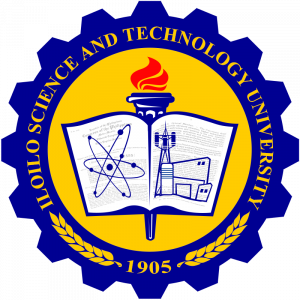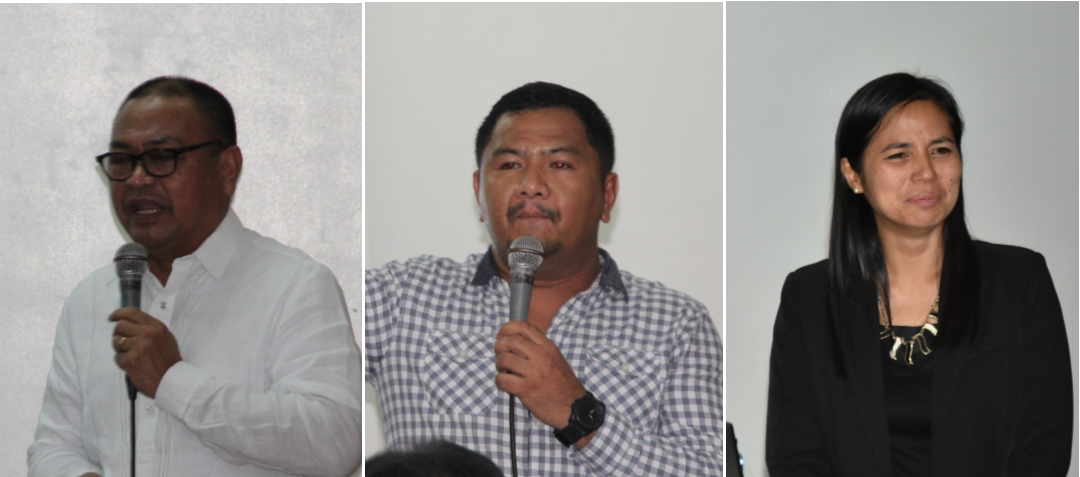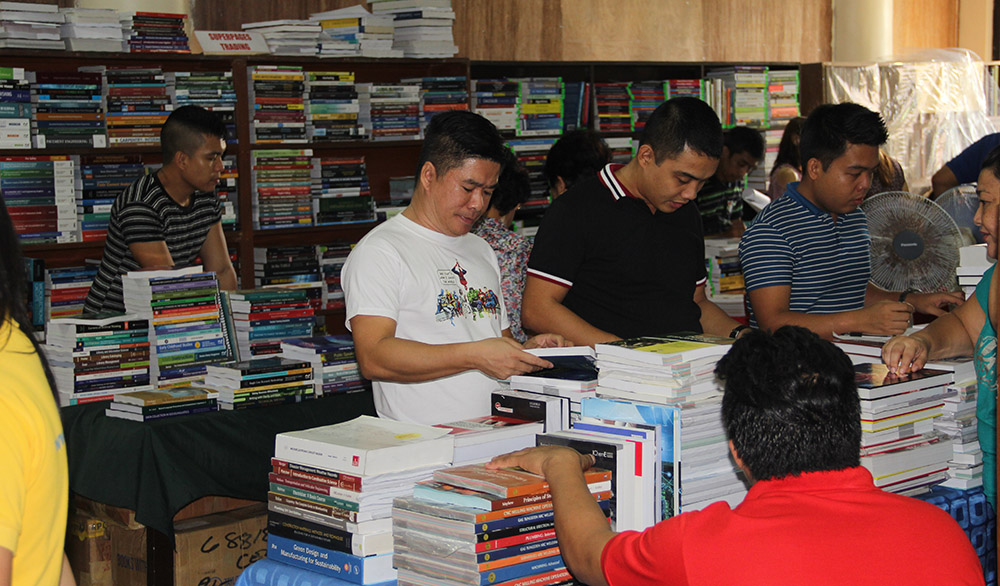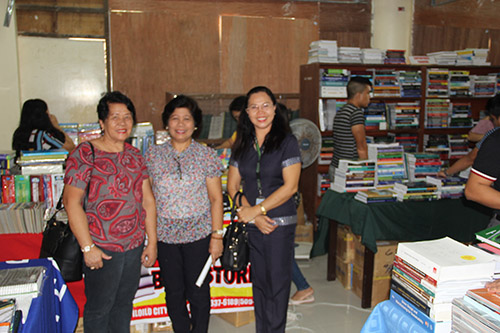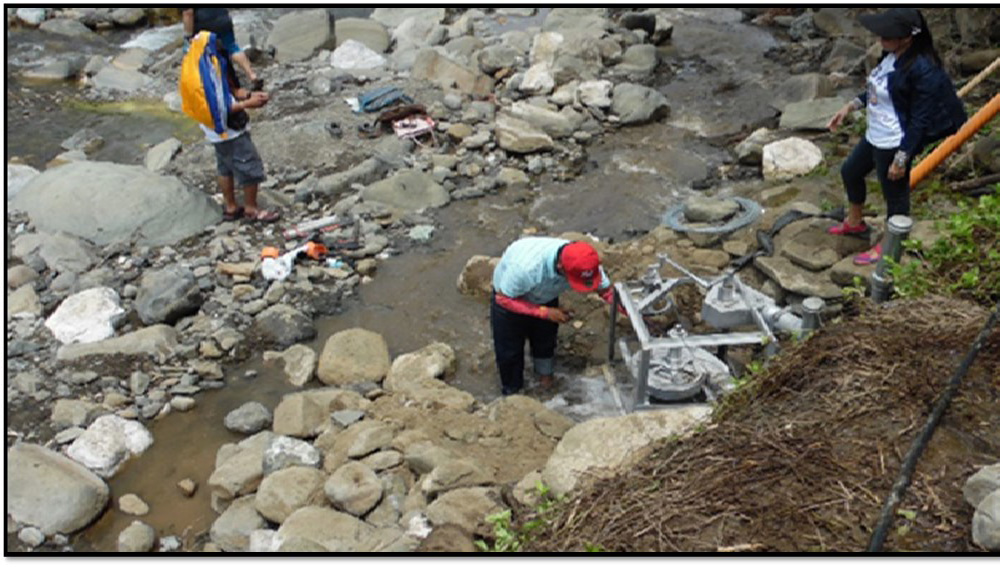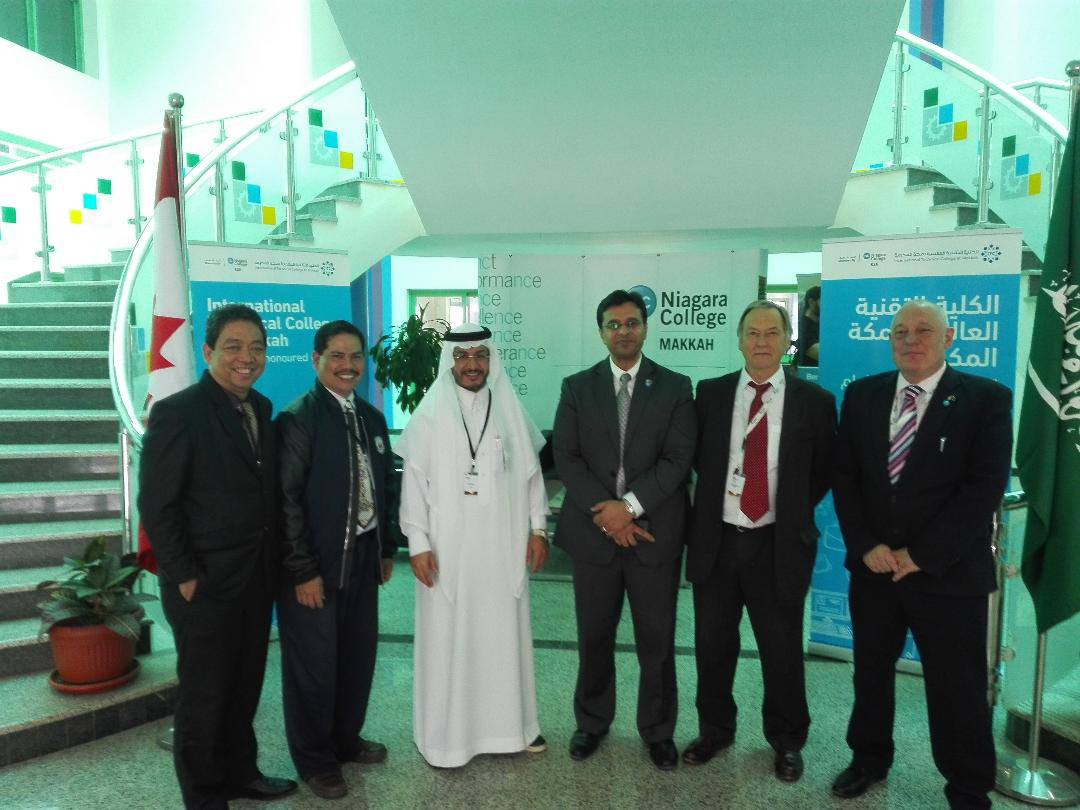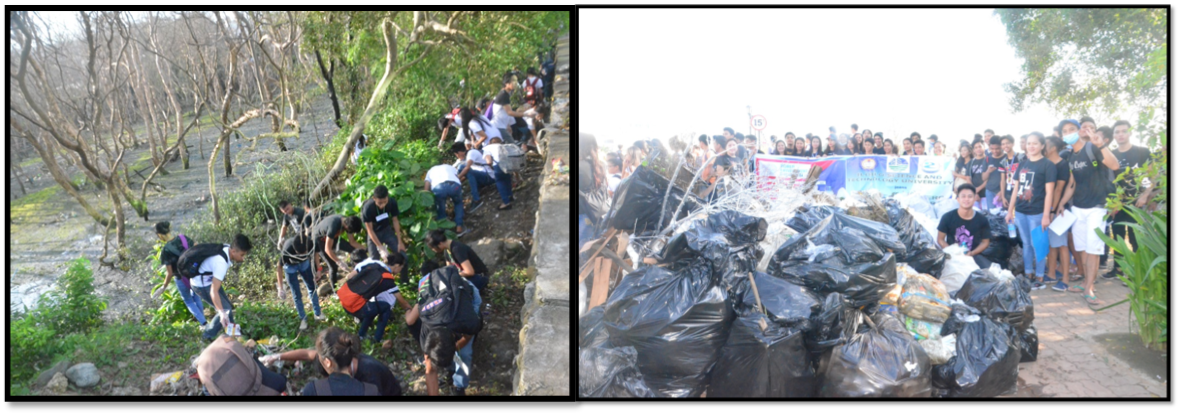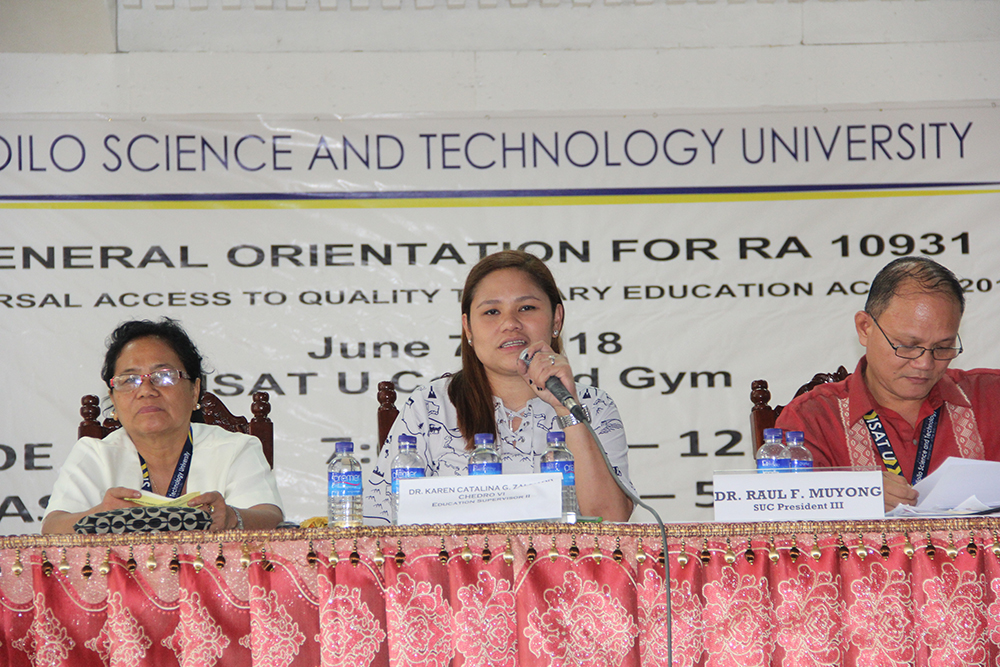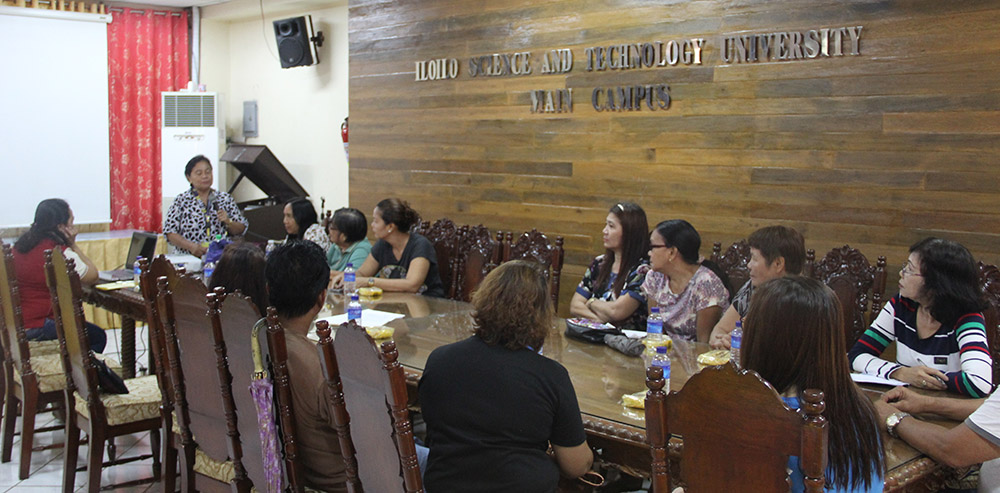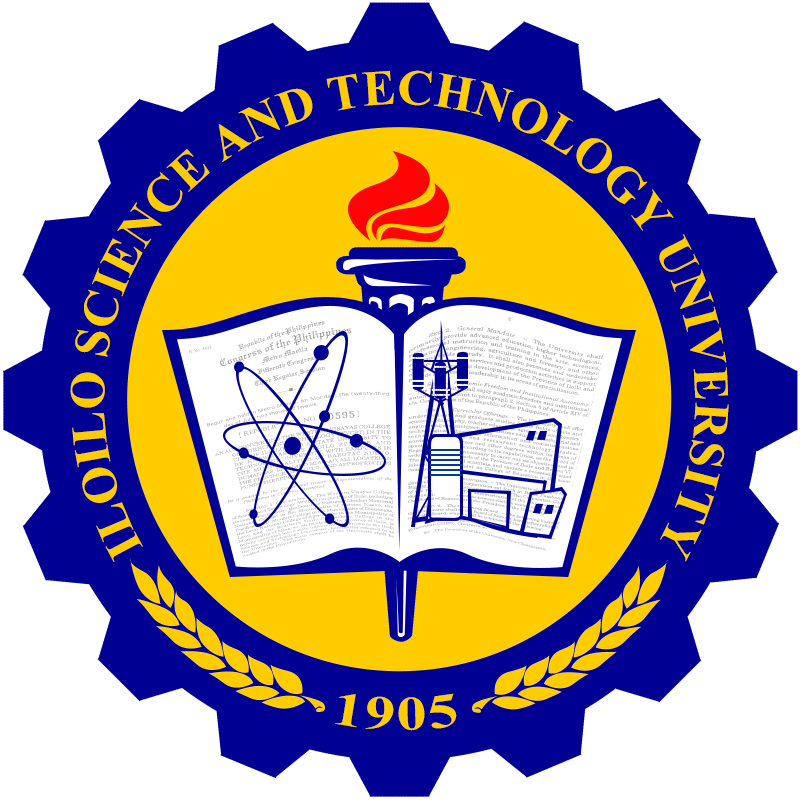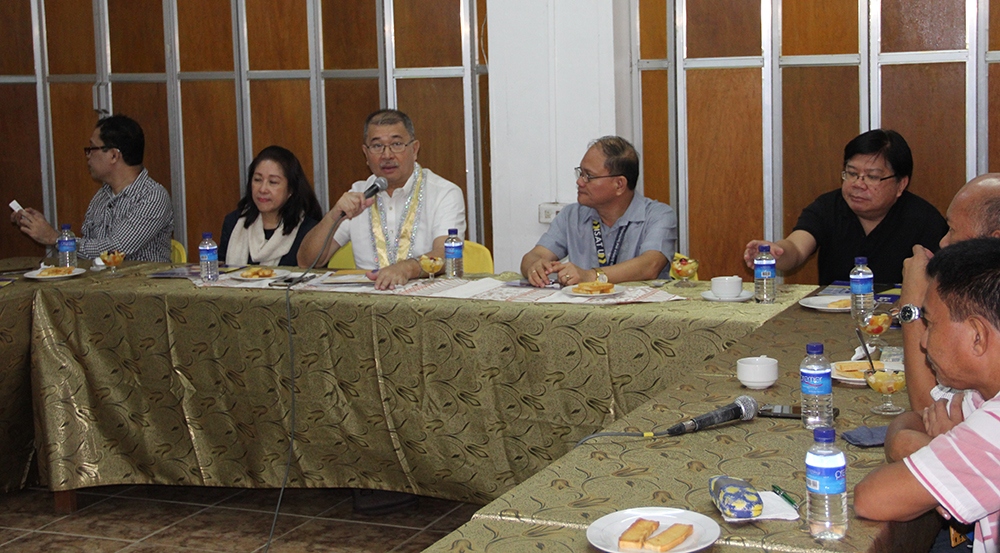
Sec. Fortunato T. De La Pena (middle) of the Department of Science and Technology raises some points after the presentation of the concept of DOSTi2TELA: Inclusive Innovation TELA (Textiles Empowering Lives Anew) program . Also in photo are (from left) Dr, Carmelo V. Ambut, VPRE; Ms. Celia B. Elumba, PTRI Director; Dr. Raul F. Muyong and Engr. Rowen R. Gelonga, Regional Director, DOST RO 6.
The Philippine Textile Research Institute (PTRI) tapped ISAT U as the regional yarn production and innovation center under the Department of Science and Technology DOSTi2TELA: Inclusive Innovation TELA (Textiles Empowering Lives Anew) program. PTRI is the premier textile research and development arm of the Department of Science and Technology (DOST) .
The concept of the program was presented to DOST Sec. Fortunato T. De La Pena during his visit on July 28, 2018.
According to Ms. Celia B. Elumba, PTRI Director, the three year program is aimed at reviving the textile industry in Iloilo by providing technical support to the local weavers. The major aspects of the project is the use of native materials (banana and pineapple fiber) for fabric-making, dyes from indigenous plants and materials, and the traditional way of weaving. It is an agro-industry integration with ecological, cultural and tourism components.
Iloilo City, Leon, Dumangas and Miagao Campuses were tapped to collaborate for the program implementation. Leon and Dumangas Campuses will provide experts in cultivating raw materials for textile and dyes. The Iloilo City Campus, on the other hand, will provide expertise in science, engineering and technology. The Research Hub will house the equipment and facilities granted by PTRI for dye research and processing.
The prototype loom machines will be housed at the proposed textile village in Miag-ao Campus. It will bolster the town’s tourism because loom machines that dates back in Pre-Spanish era, the hablon it produces, along with the famed Miagao Church are the town’s tourist attractions.
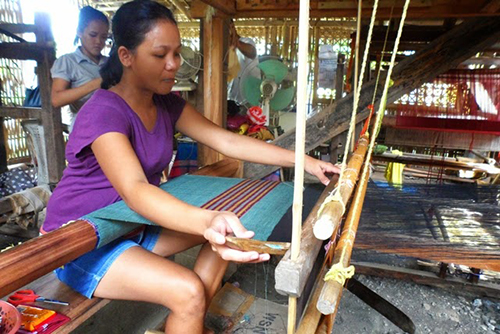
The handloom weaving at Miagao, Iloilo. (picture courtesy of mybeatifulIlOILO.blogspot.com)
Dr. Carmelo V. Ambut, ISAT U Vice President for Research and Extension, described how the proposed textile village promote tourism and industry, “a showcase of the artisan handloom weaving evolving into production slowly unfolds as one traverses the campus’ forested area. This will be labeled as “forest walk” and will be one of the tourist attractions in Iloilo.”
He added that it could also be a potential income-generating spot. “A certain part can be allotted for a “trading post” where one can buy hablons, local fibers blends and other souvenir items. The said “forest walk” ends with a visit on the production facility of local fiber blend factor which will be run by a private partner and is the recipient of the research and development outputs of the research program,” Dr. Ambut explained.
The PTRI granted 43 million pesos for the project while ISAT U will provide the facilities and the expertise for identification/survey of fibrous plants and to conduct ethno-botanical study on the local fibers in Region VI, yarn development and dyeing, propagation and identification of local source of fibers and dyes, prototyping of machineries for textile, and socio-economics and eco-tourism studies.
